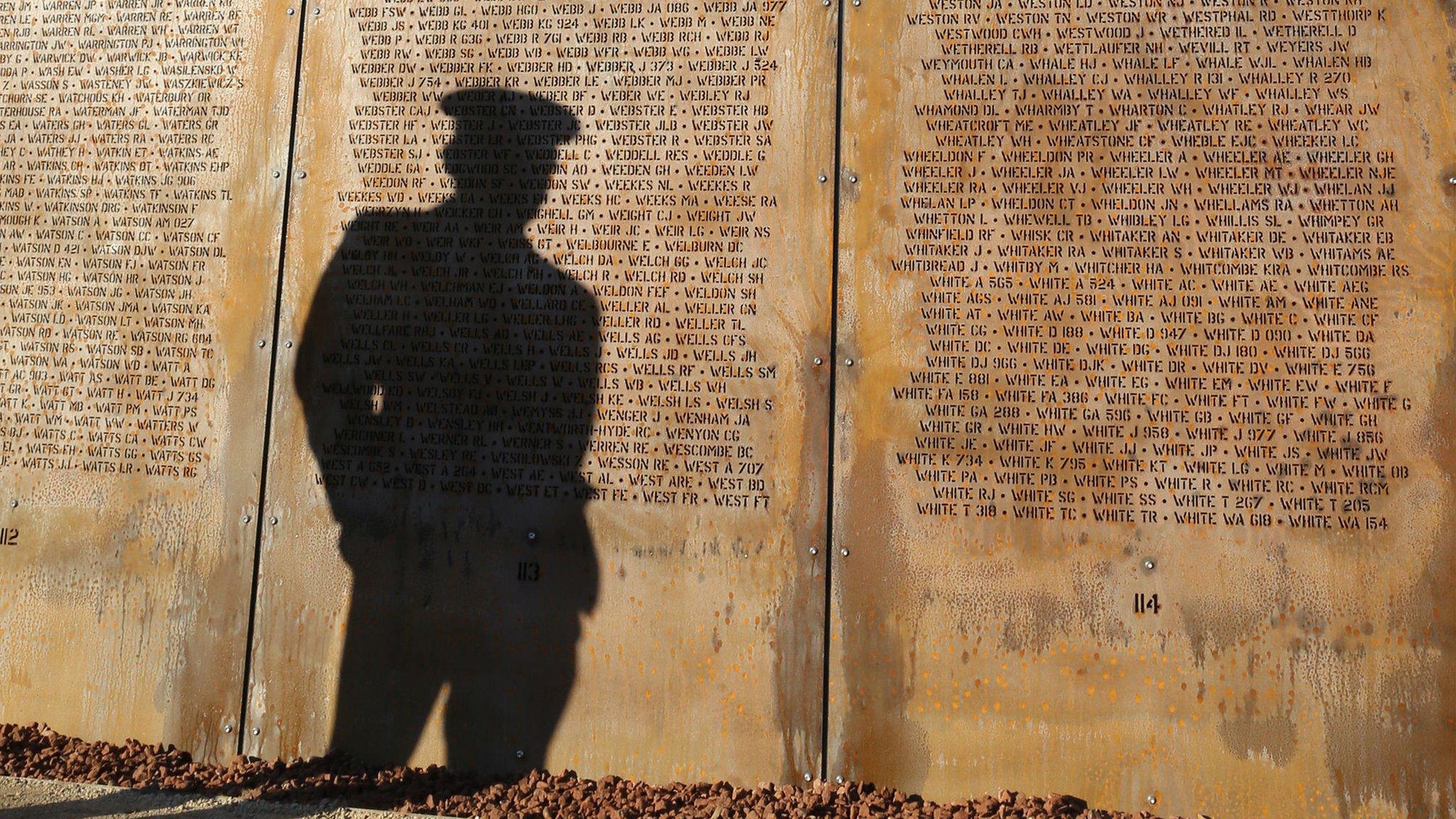Thousands of forgotten bomber crews recognised
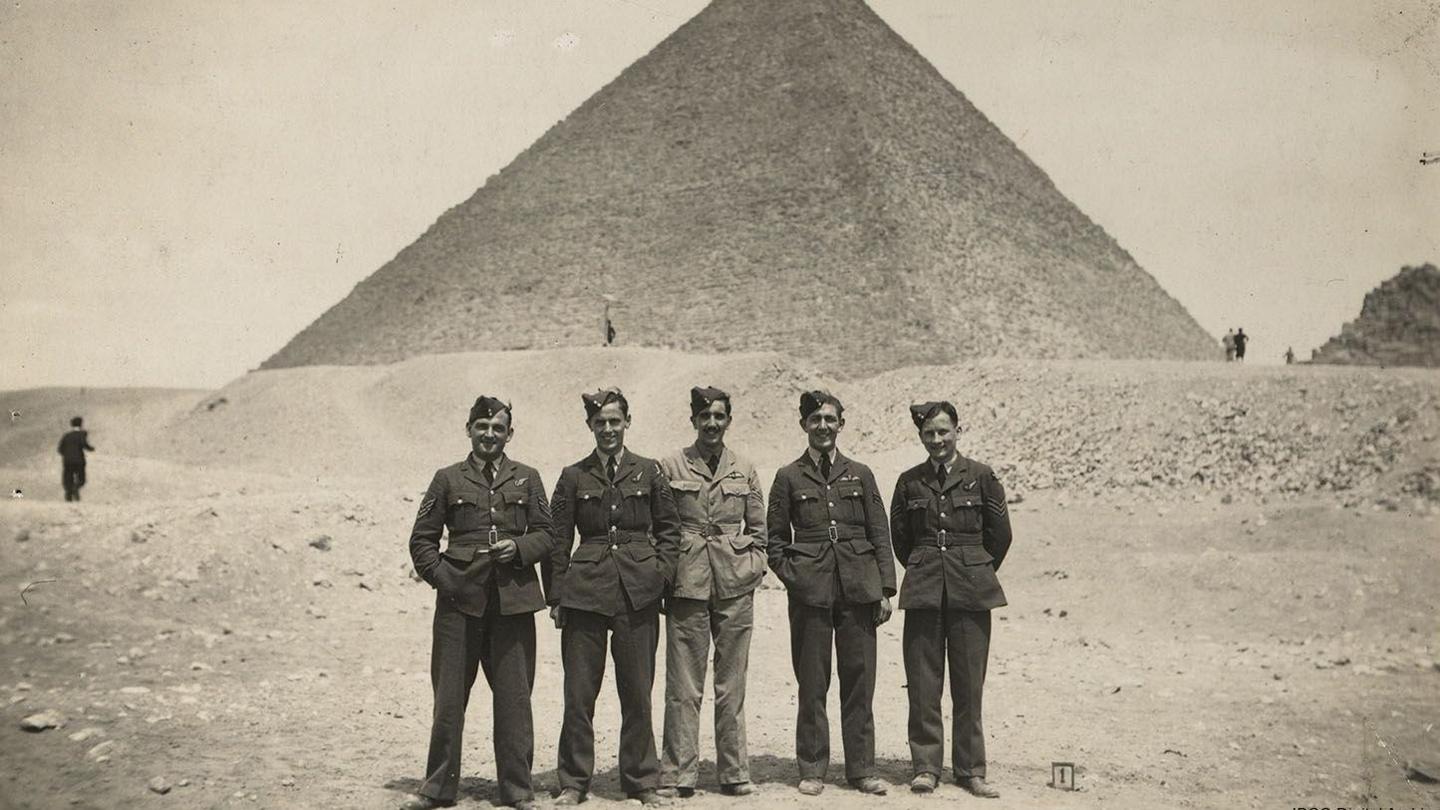
Many RAF personnel served in North Africa, the Middle East and the Mediterranean during World War Two
- Published
Thousands of people who served in a "forgotten force" of the RAF during World War Two are to be honoured following extensive research.
Almost 58,000 men and women from Bomber Command, who died between 1939 and 1945, are recorded in the world's largest archive and honoured on a memorial at the International Bomber Command Centre (IBCC) in Lincoln.
However, the names of 9,000 who served in the Second Tactical Air Force (2nd TAF), and in the Mediterranean, Middle East and North African areas, were not discovered until volunteer Dave Gilbert was contacted by their relatives.
Mr Gilbert said £350,000 of funding was needed to have the names engraved on the walls of the IBCC.
Mr Gilbert has been involved in research for the memorial for the past 12 years.
Since September 2023, he has been studying the additional 9,000 names due to the "disappointment" of relatives who did not see their family members on the metal walls.
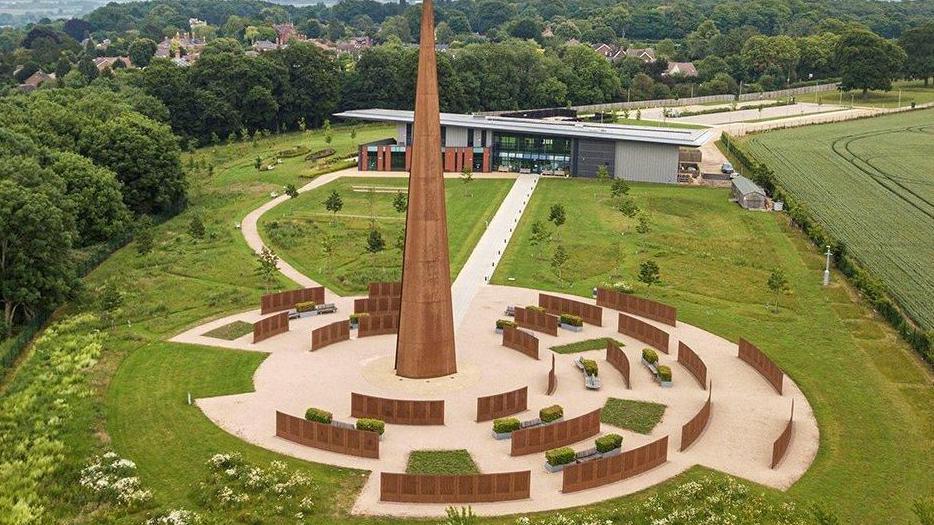
The IBCC in Lincoln features memorial walls and a 102ft (31m) metal spire
Last week, their names were added to the IBCC database, external, with the total figure reaching 67,300 personnel.
Explaining the significance of recognising and honouring all those who lost their lives serving in the 2nd TAF and overseas, Mr Gilbert said: "It tends to be a forgotten force, so it's really important that we tell their stories.
"In the Mediterranean they were probably in tents and subject to diseases that just didn't happen in the UK. And even just getting there was fraught with danger.
"I think it's important that people understand what sort of conditions these people were having to endure."

Mr Gilbert says his research into those who lost their lives has had a "profound effect" on him
While 60% of those who served in the 2nd TAF were British, about 20% were South African, and 20% from Australia and Canada, with the rest from "almost every one of the Commonwealth countries", said Mr Gilbert, an engineer from Lincoln.
Among those who lost their lives in combat, a proportion died of diseases such as malaria and dysentery, as well as in road traffic accidents in places such as Cairo.
"Every single step along the way, every individual flight was in some way dangerous.
"For example, as they flew from the UK to Gibraltar they would fly over the Bay of Biscay, where there were prowling fighter aircraft just waiting to pick them off.
"So it's an astounding number – 20% were killed just getting there and, again, that's a largely forgotten story, but a very important one."
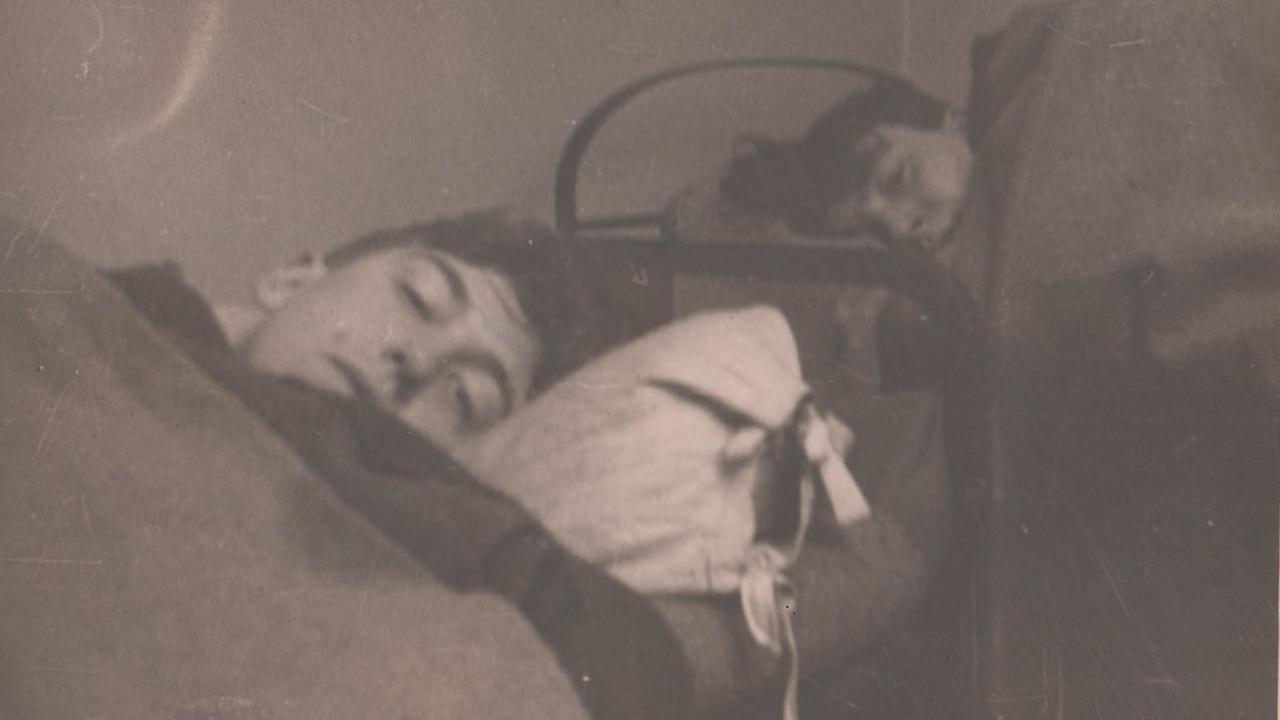
Conditions were harsh for some who were posted overseas
Mr Gilbert said the Kufra tragedy, in which 11 of 12 South African airmen died in the Libyan Desert following a forced landing, had "a profound effect" on him.
"Sadly they all perished of dehydration. They tragically shot themselves because of dehydration. It's a really terrible story.
"Although you don't know these people, you feel the sense of loss. You kind of grieve a little bit for this person.
"Everyone that you type in, you [feel] kind of onboard the aircraft with them as it goes down. You can't help that."
Mr Gilbert said he hoped to learn more about the lives he researched in order to tell their stories.
"Knowing something about their lives is really important."
Listen to highlights from Lincolnshire on BBC Sounds, watch the latest episode of Look North or tell us about a story you think we should be covering here, external.
Related topics
- Published9 January 2024
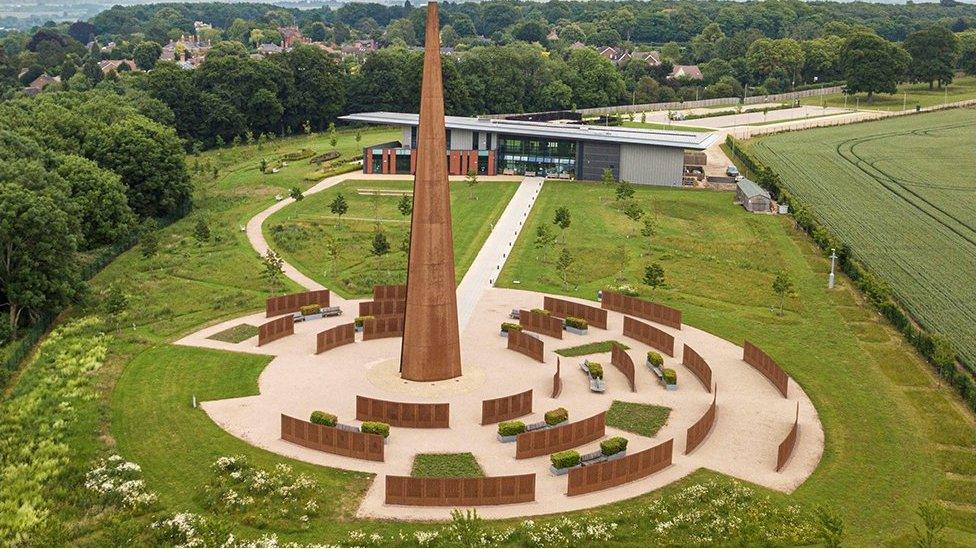
- Published19 May 2024
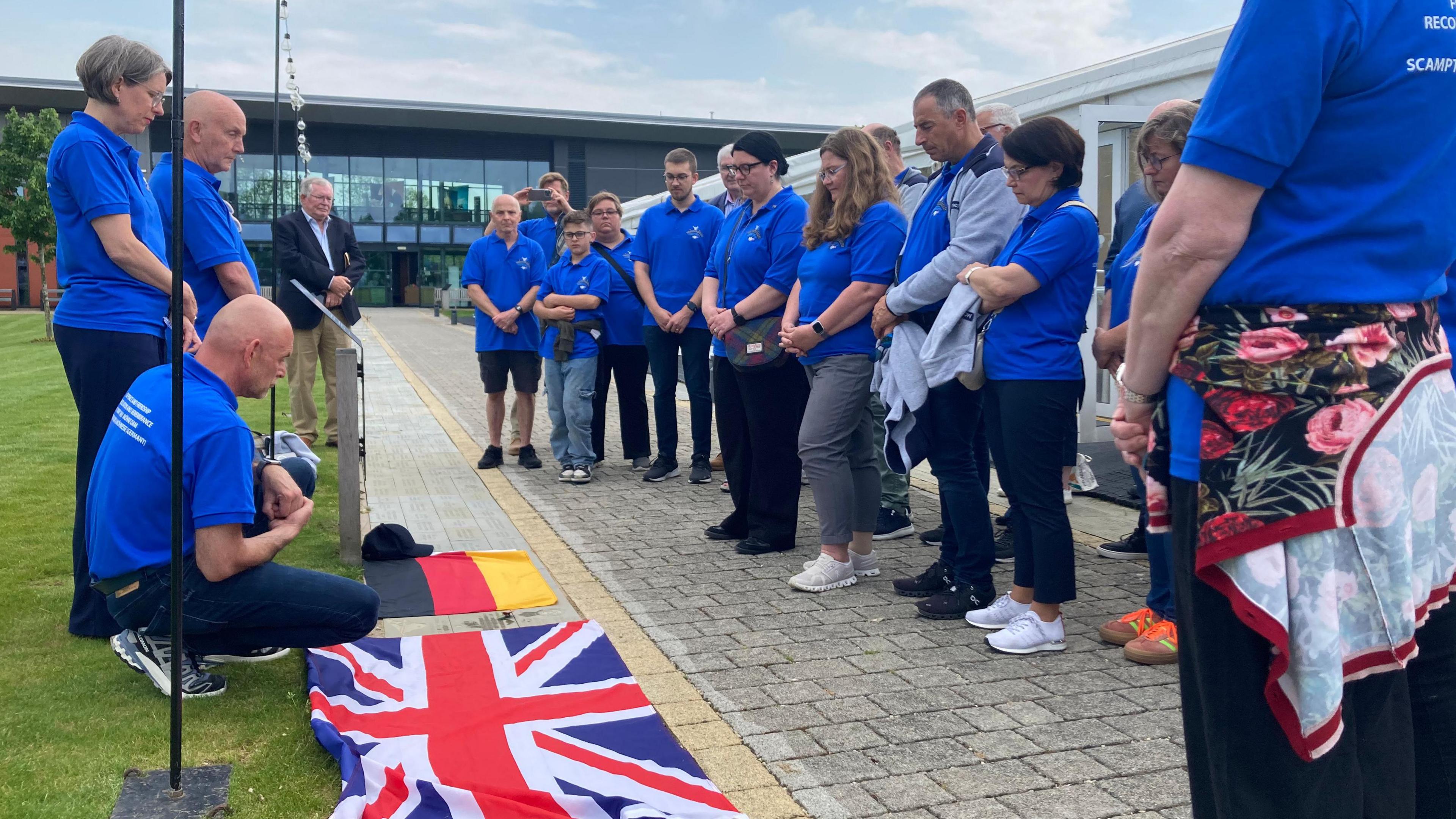
- Published22 December 2023
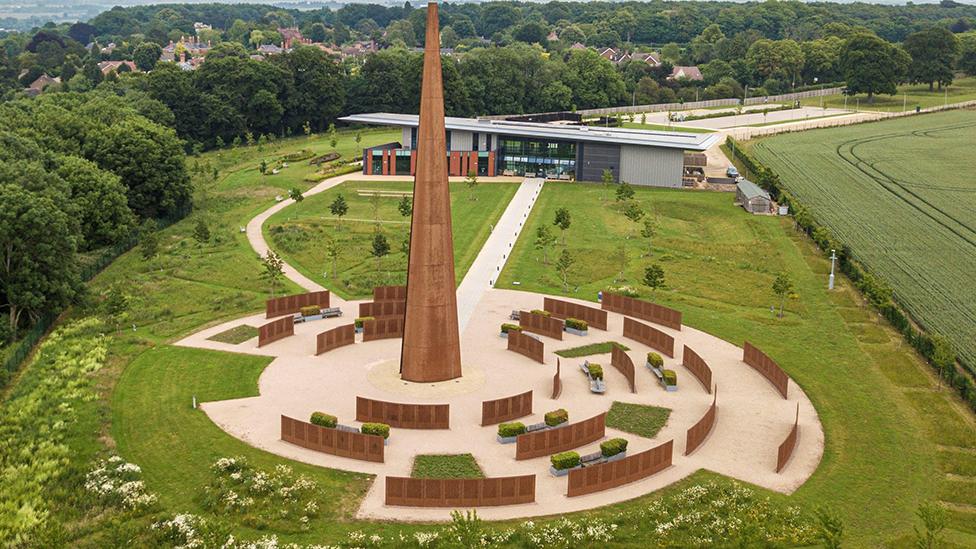
- Published12 April 2018
